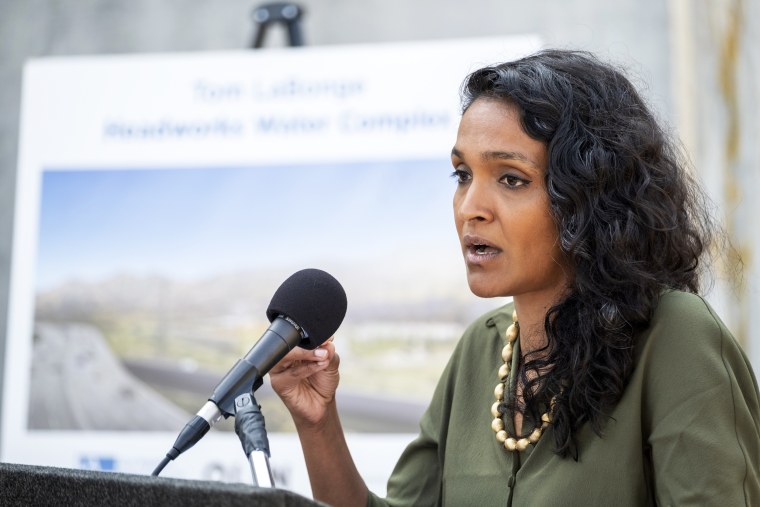When urban planner Nithya Raman ran for Los Angeles City Council in November, she pledged to take on a herculean task: finding permanent dwelling for the city’s more than 41,000 unhoused residents.
California is home to nearly a quarter of the nation’s homeless population. But the progressive policies Raman advocated for — defund the police and build a half-million units of government-owned housing — seemed radical to many residents in the district she won, which stretches from the neighborhoods of Silver Lake to North Hollywood and has some of the highest homeownership rates in L.A.
In response, she led a grassroots campaign that mobilized large swaths of the city’s electorate who don’t typically vote in local elections: low-income renters, including many immigrants. In a race that saw historic turnout, she became the first South Asian and first Asian woman elected to the office, as well as the first person in nearly two decades to unseat an incumbent council member.
“One of the reasons I ran for office was because in L.A., historically, City Council elections haven’t had a lot of participation from voters,” Raman, 39, told NBC Asian America. “Usually, they’re homeowners in a city that’s majority renters — and they’re not as diverse as the city as a whole. Because so many more of these voters voted, to me their needs needed to be heard at City Hall.”
Raman, who was born in India, said her experience as a young immigrant in the U.S. pushed her to pursue a career in social justice. After graduating from the Massachusetts Institute of Technology with a master's in urban planning, she spent seven years in Chennai and Delhi in India mapping expanding tenement clusters on city outskirts and delivering basic services to evicted slum-dwellers.
Her approach to politics, she said, is deeply influenced by the work she’s done in the country of her birth.
“I worked with people who lived in slums and informal settlements who had basic needs,” she said, “but because they were not on official city maps, and because of the way in which their communities were structured, their needs were not reflected in the municipal planning processes they were engaged with in India.”
In the eight months she’s been on the job in L.A., Raman and her office have housed more than 100 people — nearly 10 percent of unsheltered residents in her district — by opening citywide access centers and connecting unhoused residents with a robust network of outreach workers.
Unlike New York City, which has the largest homeless population in the country, Los Angeles has far fewer shelters, and 3 in 4 unhoused people live outside in tents. In June, Raman introduced motions to build permanent supportive housing in two city-owned spaces in the affluent neighborhoods of Hollywood and Miracle Mile. For months, her team sifted through databases of public properties, including parking lots, to identify sites that fit the city’s building code requirements.
“Our response to homelessness has historically been a complaint-driven model,” she said. “If people complain about an encampment on a particular street, then the police are called, the tents are taken down and people just move to another street.”
This response, Raman said, doesn’t address the root causes of homelessness.
“What I’d like to see from the city is a way for us to move away from shuffling people around from one place to another,” she said, “and really look at how we can use the resources in the city to systematically end homelessness for individuals who are experiencing it.”
In many ways, Raman’s work as an elected official builds on her work as an organizer. In 2017, she co-founded the SELAH Neighborhood Homeless Coalition, which provides showers and hot meals to unhoused Angelenos. Then, as the executive director of Time’s Up Entertainment, she spearheaded a mentorship program to connect underrepresented writers with Hollywood producers using grant money from CBS, following former CEO Les Moonves’ exit.
The Covid-19 pandemic has put many people out of work and onto the streets, and following the Supreme Court's decision to end the federal eviction moratorium, even more are expected to lose their homes. For the rest of the year, Raman said she’ll be focused on strengthening tenant protection laws and stemming the flow of evictions. Those measures include more funding for the city’s housing department to share with the public information about tenant rights and to create a registry of rental units.
“Service providers will often say the number of people becoming homeless exceeds the number of people we’re housing every day,” Raman said. “We have to stop the inflow of people falling into homelessness.”
